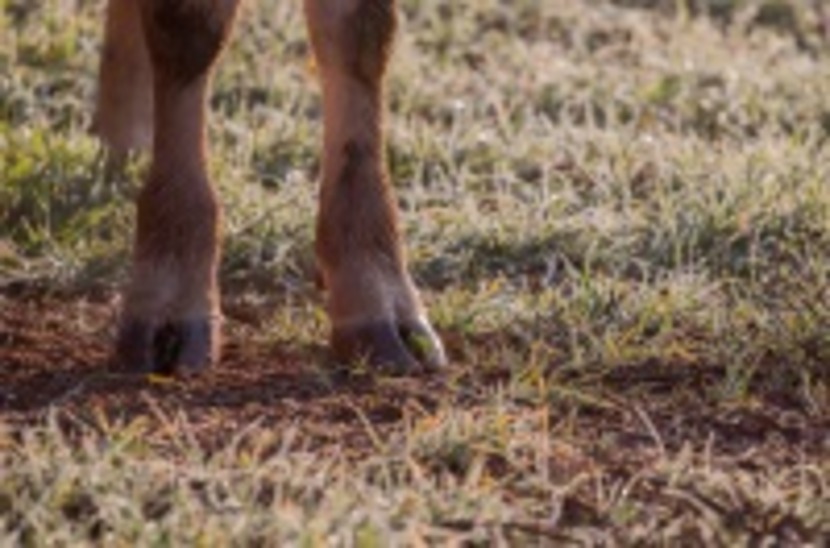1. Fazer vaquinha

Literal translation: To make a small cow.
Meaning: Raising money with the help of several people with the intention of reaching a certain goal or buying something.
The origin of this popular expression occurred in the decade of 1920, when soccer players did not receive any salary. The fans of the teams gathered and collected all possible money to reward the players of their clubs. The collection was popularly related to a game named “Animal game”, whose biggest prize represented a cow. Hence the expression “to make a small cow”, that is, to raise the maximum in monetary resources for a specific purpose.
2. Engolir sapos

Literal translation: To swallow frogs.
Meaning: To endure unpleasant situations without reacting or showing displeasure.
The origin of the popular expression “to swallow frogs” was given by one of the stories written in the Bible: The plagues of Egypt. One of the plagues was the invasion of thousands of frogs all over Egypt. During the preparation and ingestion of food, there were the amphibians. These animals not only invaded the rooms – kitchens, bedrooms, bathrooms – but also the dishes of the inhabitants of the kingdom. Hence the expression “to swallow frogs”, that is, to endure unpleasant situations without any manifestation.
3. Acabar em pizza

Literal translation: To end in pizza.
Meaning: When a situation is not resolved and remains the same. Often used to describe events in Brazilian politics.
The origin of the popular expression “to end in pizza” was the crisis of the Palmeiras soccer team in 1960. Directors of the team based in São Paulo met and discussed for approximately 14 hours in a row. After the long discussion, everyone, very hungry, went to a pizza restaurant, drank a lot of draft beer and ordered 18 huge pizzas! After this, peace reigned absolutely. The journalist Milton Peruzzi, after the episode, wrote a story whose title was: “Crisis of Palmeiras ends in pizza”. Since then, the term has become popular. Hence the expression “to end in pizza”, that is, trial of scandals without any punishment; usually political.
4. Ficar a ver navios

Literal translation: To stay watching ships.
Meaning: To feel frustrated with your expectations and become disillusioned.
The origin of the popular expression “to stay watching ships” was the death of Dom Sebastian, King of Portugal, in 1578. He disappeared in Africa and was presumably killed in action in the battle of Alcácer Quibir (also known as “Battle of Three Kings”). The Portuguese people refused to believe the death of their king, so it was common for people to stay on the Alto de Santa Catarina hill in Lisbon, watching the ships arriving in the city and waiting for the king to come back. It is certain that Dom Sebastian never returned, and therefore these people were just “watching ships”, that is, they were disappointed because what they hoped for did not materialize.
5. Falar pelos cotovelos

Literal translation: Speak by the elbows.
Meaning: To speak too much or excessively.
The origin of the popular expression “speak by the elbows” was given by the analogy of acts performed by individuals who talk a lot during a conversation. According to the writer Quinto Horácio Flaco in one of his satires, these individuals touch the elbow of the people who listen to them, calling their attention to the dialogue. Hence the expression “speak by the elbows”, that is, speak excessively.
6. Feito nas coxas

Literal translation: Made in the thighs.
Meaning: Something was done hastily, without whim and badly done.
The origin of the popular expression “made in the thighs” occurred at the time of Brazilian slavery, where the tiles were made of clay, molded on the thighs of slaves. Obviously, the slaves had different physical sizes, causing the manufacture of completely unequal tiles and, consequently, uneven roofs. Hence the expression “made in the thighs”, that is, badly done.
7. Mão de vaca

Literal translation: Cow hand
Meaning: An individual who does not like to spend money, who is stingy.
The origin of the popular expression “cow hand” arises from the fact that some people have the inability of a cow to handle objects. For the humans these objects refer – in allusion – to money or other types of financial/material goods. Hence the expression “cow hand”, that is, an individual who doesn’t like to spend money.
8. Tirar o cavalinho da chuva

Literal translation: To take the little horse out of the rain.
Meaning: To give up something, to abandon pretensions, to lose hope that something will happen immediately.
The origin of this popular expression occurred in the 19th century, when the horse was the most practical and common mode of transportation and used by people when they visited friends. To indicate that the visit would be brief, the horses were moored in front of the house. However, when it began to rain, the animals were taken to a shed. The rain sometimes would took a long time to pass, sometimes hours or days, which would make the visitors lose hope that they would leave the house so soon. Hence the expression “to take the horse out of the rain”, that is, to lose hope that something will happen immediately.
These are just a few examples of how a professional translation followed by good language quality assurance is essential to delivering the correct message to audiences worldwide. Here at PTIGlobal we provide the highest quality and most personalized services to adapt to any clientele necessary.
We invite you to contact us about your translation and localization needs at getstarted@ptiglobal.com.
Source:
https://www.significados.com.br/
https://expressoespopulares.wordpress.com/









